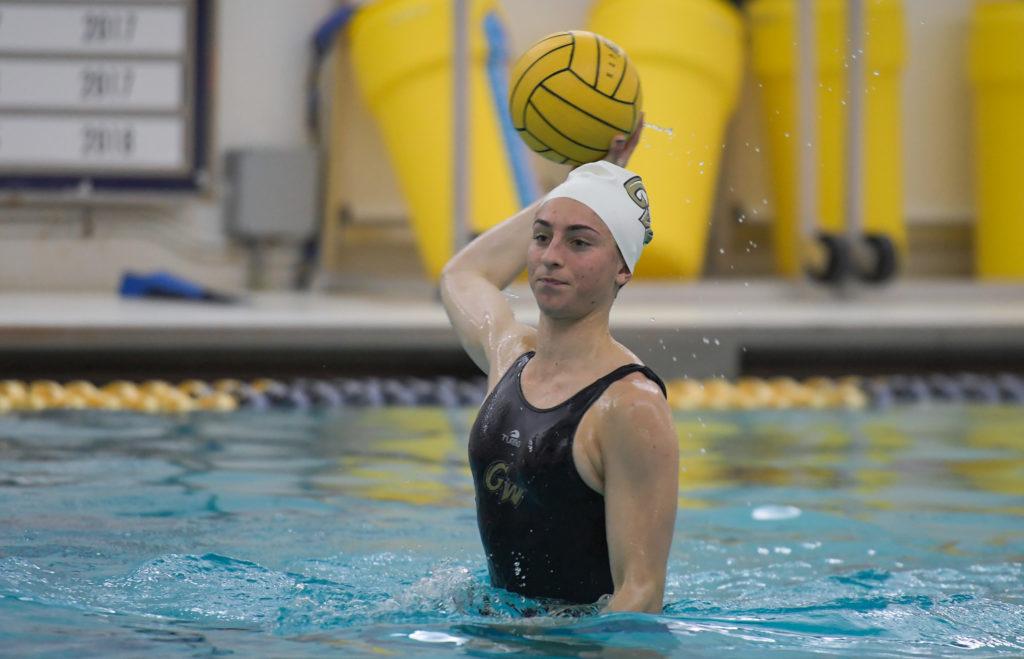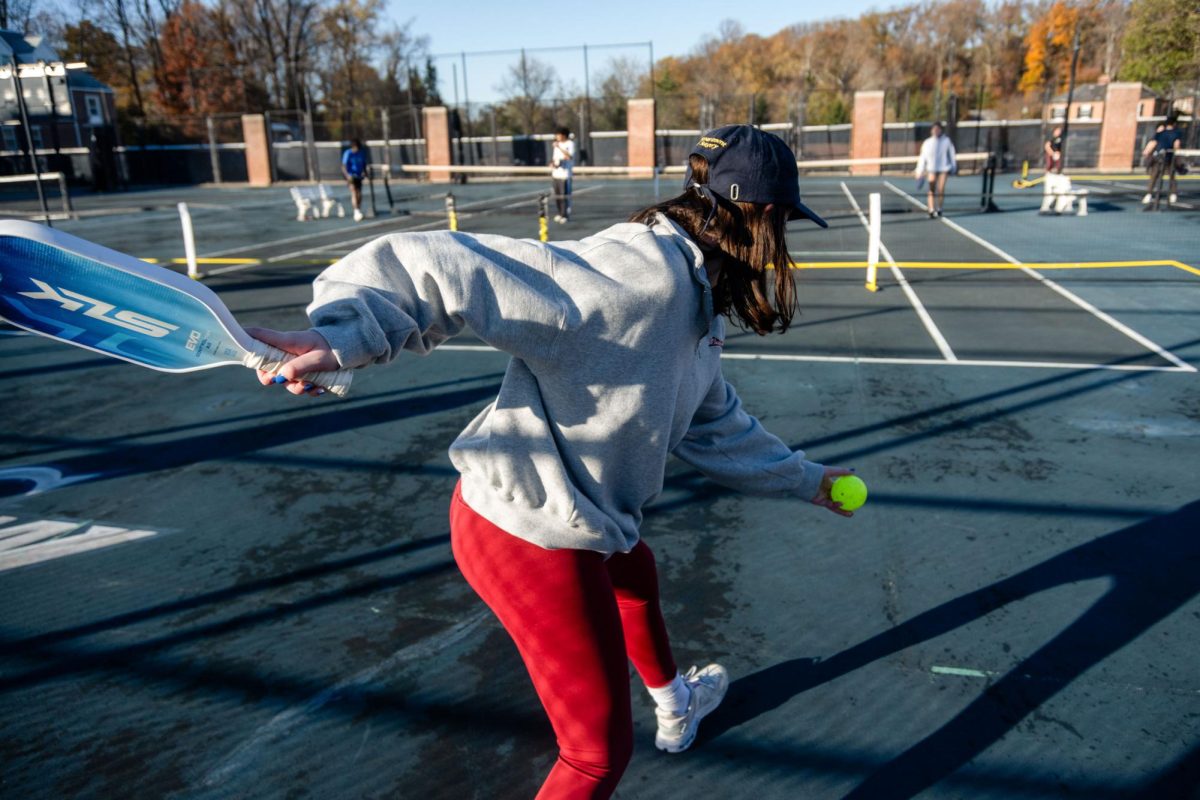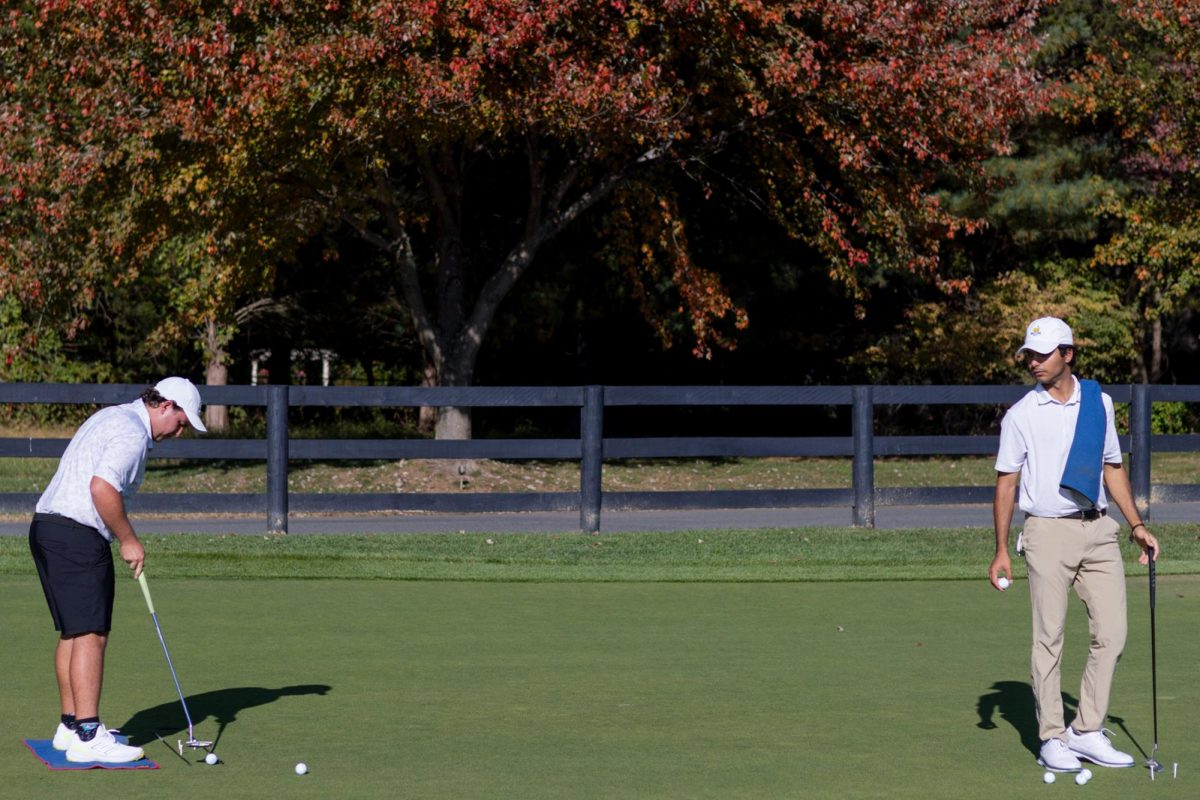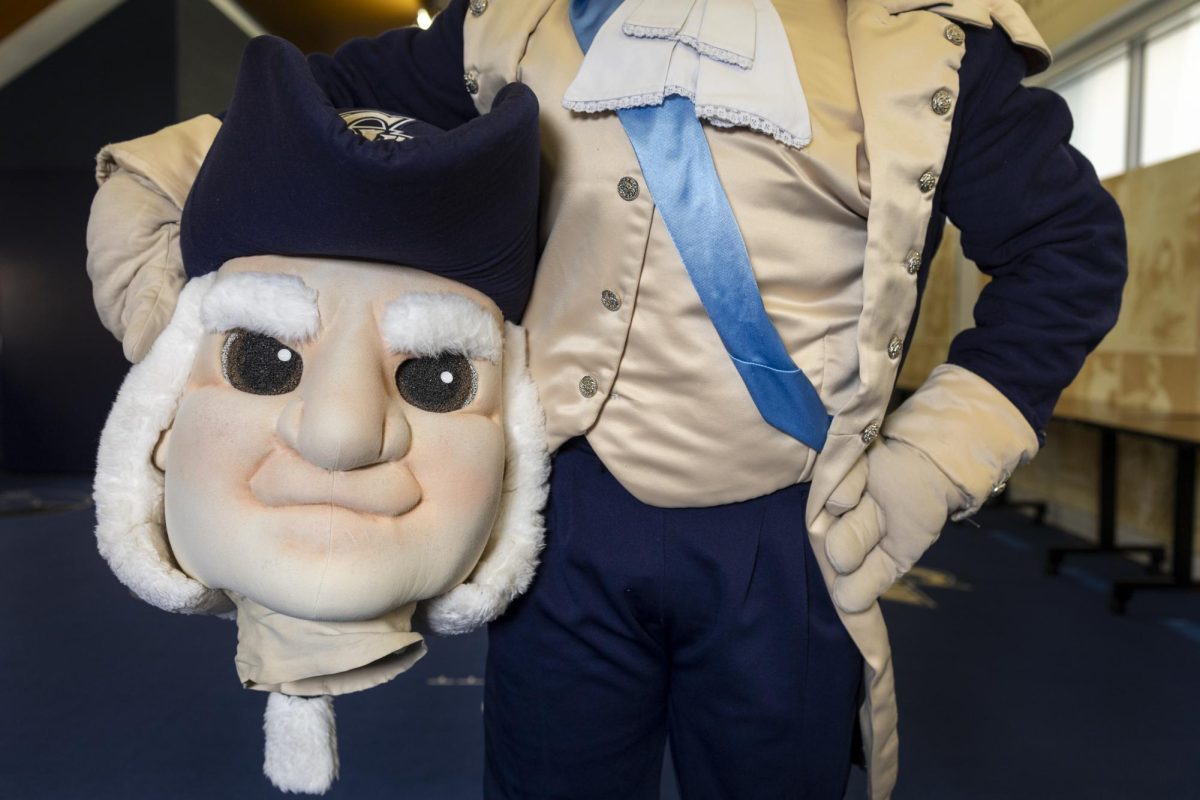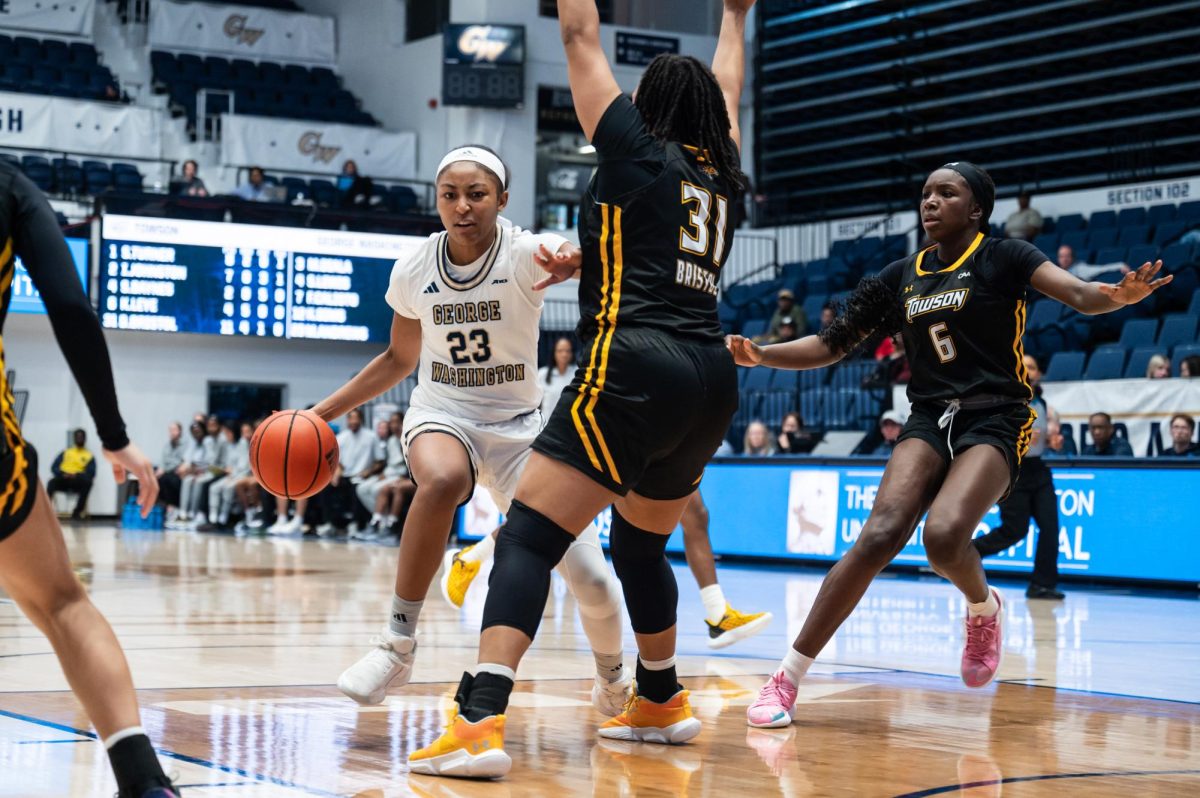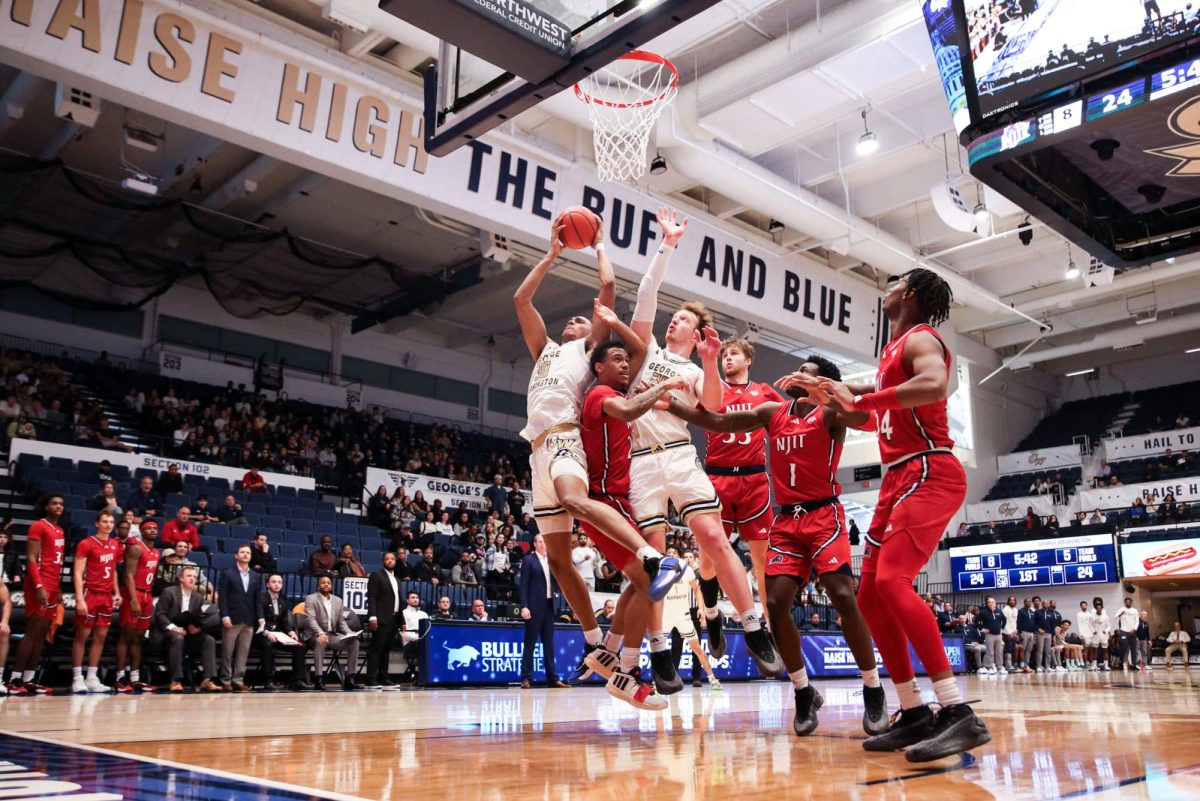Before he became the first African American man to win the elite Diamond Sculls race at the Henley Royal Regatta and to row for Team USA at the 2004 Athens Olympics, Aquil Abdullah spent four years crewing in the Potomac for GW.
The men’s rowing program granted Abdullah, who graduated in 1996, a scholarship to attend the University, where he said he learned the discipline and dedication it took to qualify for Athens eight years after graduating.
But when Abdullah heard GW’s decision late last month to eliminate men’s rowing and six other programs, he and other alumni called the announcement “heartbreaking,” adding that the cuts will take away opportunities for athletes to grow their programs down the line.
The University will cut men’s rowing – along with sailing, men’s and women’s squash, men’s indoor track and field, men’s tennis and women’s water polo – at the conclusion of the 2020-21 season. Former athletes said they are processing the “disappointing” news, reevaluating their involvement with GW and extending support to current student-athletes.
Athletic department spokesman Brian Sereno declined to facilitate interviews with current student-athletes and head coaches involved in affected programs, saying the department is going to focus on “what’s ahead rather than the decision made that wasn’t theirs to make.”
Alumni react to cuts
Alumni said they were “shocked,” “disappointed” and “frustrated” with the University’s decision to eliminate seven programs. They said they were made aware of the cuts shortly before GW’s announcement to the University community through an email.
Abdullah said he understands the athletic department’s financial setbacks were exacerbated by the COVID-19 pandemic, but he felt like GW was being disloyal to its student-athletes by taking away a part of his and current athletes’ college experience.
“I don’t know if ‘funny’ is the right word, but I received a giving envelope in the mail the other day that said, ‘Stay loyal, thank you for being loyal to GW’ and all of this stuff,” Abdullah said. “I felt as though in some ways the University wasn’t being loyal to me.”
Men’s and women’s squash alumni penned a letter to officials calling for greater transparency in the decision-making process and started a petition to save the programs. Athletic department officials declined to comment on the letter and petition.
Catherine Ehrlich, a 2014 graduate, said she will no longer “have a relationship” with GW until the squash program is reinstated, adding that squash alumni donated to the school and attended games to show support.
Jose Calderon, a 2012 graduate, added that the teams’ eliminations were “a slap in the face” to current student-athletes and alumni who gave their all for the program.
“Most of us participated in the team because of our passion for squash without receiving scholarship money or perks other teams got,” Calderon said.
Viktor Svensson, a three-time Atlantic 10 champion with men’s tennis and a Class of 2014 graduate, said men’s tennis alumni have been in contact with each other and are exploring “funding possibilities” to keep the program afloat.
“If they told us that it was a matter of not having the funds to support the program anymore or a matter of x, y or z, at least we would know what is required to save the program and action could be taken,” Svensson said. “But I feel like that dialogue is not always that transparent.”
Alana Ponce, a 2020 graduate and the first women’s water polo player to be named an All-American, said she felt “betrayed” by the athletic department. Ponce said while the team struggled to keep numbers on the roster and hadn’t had a winning record in 16 years, the squad played hard and with heart.
“It kind of seemed like GW didn’t really want to give us another chance to prove ourselves anymore,” Ponce said. “They kind of just gave up on us, and that was pretty disappointing. Them not telling us was just a complete different story. I didn’t even hear anything from my coach.”
Alumni reconsider relationship with GW
At least 13 former student-athletes said they will reconsider recommending or making donations to the University and the athletic department.
“They had very poor communication with parents and athletes, so just that in itself is going to deter people from wanting to support the athletic facilities and whatever else,” Ponce said. “As alumni groups, if you don’t see your sports there at that school anymore, then why would you donate, right?”
Adriana Calderon, a 2014 graduate and women’s squash alumna, said she was caught off guard by GW’s decision to cut the team and is now second guessing her involvement with the athletic department, adding that she has recommended GW sports to prospective athletes.
“It is very disappointing as squash was one of the main reasons I chose GW, and though I love the University, supporting and recommending the athletic department to future students will be hard, as I don’t share the decisions recently taken,” Calderon said.
Noah Duell, a 2018 graduate, said men’s indoor track and field, which is approaching its sixth year at GW, didn’t have the chance to get off the ground before it was defunded. He added that the program was second to last in the A-10 in terms of scholarships and relied on walk-ons to fill the roster, and the elimination felt like GW was “kicking them while they’re down.”
Despite the loss of an indoor track and field team, student-athletes on the team can still compete during the cross country and outdoor track and field seasons at the varsity level.
Duell and 2018-graduate Chris Shaffer said the alumni network is still excited and optimistic about the future of the track and cross country teams. Shaffer added that alumni will continue to support the current student-athletes and coaches monetarily and attend meets.
“For the Atlantic 10 Cross Country Championship, there’s usually a group of alumni going back several years going to show support for the team, which is really awesome to have,” Shaffer said. “I certainly appreciated it when I was an athlete.”
Alumni rally for affected student-athletes
Alumni are stepping up to comfort current athletes and begin the planning process for a transition to the club level.
Richard Sant Jr., a 2013 graduate and instrumental player in the push to make sailing a varsity program nearly a decade ago, said varsity-status provided sailors with benefits like priority class registration, which allowed athletes to attend class around practices, and funds for boat maintenance.
He added that the team’s alumni base is a tight group that can serve as coaches, attend regattas and provide insight as to how the club team operated before it became a varsity program.
“I think especially now, especially the club sailing alumni, we have an open dialogue with the current sailors who are trying to figure out what the next step is and how to best utilize resources and assets in their transition from a varsity program to a club program,” Sant said.
Maggie Ball, a 2018 graduate, said the women’s water polo alumni network is working to plan the team’s best steps moving forward, brainstorming ways to provide financial and emotional support to athletes.
The group will write an open letter to the GW community condemning the decision and a letter to the current athletes to show their support, she said. Ball added that some older alumni with connections to the alumni office have been reaching out to get more information on the decision but have received “disappointing” form responses.
“How do we support the girls, how do we support the program, either to get this decision reversed or to support them as they move to club status whether that be financially, emotionally, all of the above?” Ball said.
Emily Maise contributed reporting.


